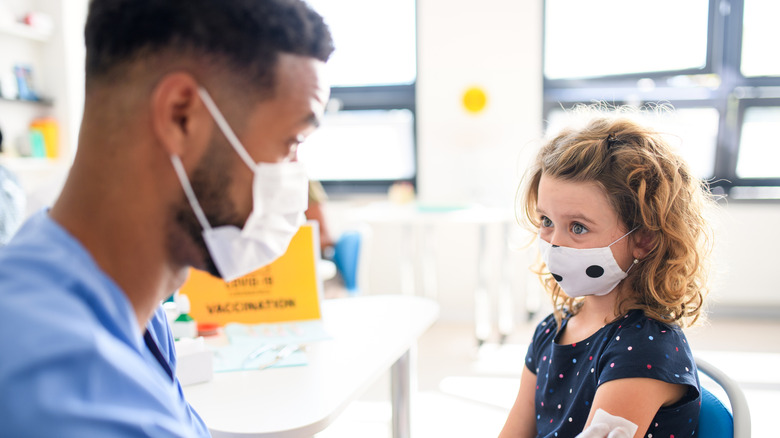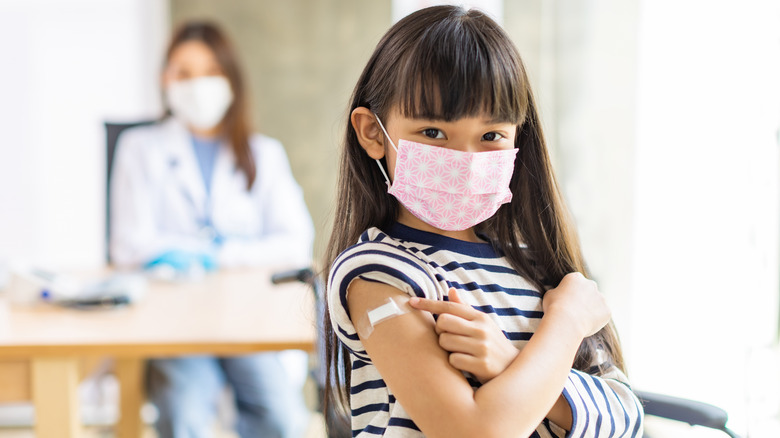COVID-19 Vaccines For Children Under Five May Take Longer Than Expected
Pfizer and BioNTech have postponed their rolling application to the U.S. Food and Drug Administration (FDA) to expand emergency use authorization of their two-dose COVID-19 vaccine for children under 5 years old. In a joint statement released on Friday, the pharmaceutical companies announced that the postponement would allow the FDA to further evaluate the two-dose and potential three-dose regimen of the COVID-19 vaccine.
According to NBC News, the two-dose series didn't generate a strong enough immune response among children between the ages of 2 and 4. That's why Pfizer added a third dose to the primary vaccine regimen in December 2021. For children under the age of 5, the vaccine dosage is only 3 micrograms, while the dosage for children ages 5 to 11 is 10 micrograms. Although the FDA had originally planned to start reviewing data on the two-dose regimen while the three-dose clinical trial was still underway, regulators have decided to wait to review the data on the three-dose regimen before moving forward with Pfizer's request for emergency use authorization.
While the two-shot series did provide some protection against the virus among children between the ages of 6 months and 4 years, the three-shot series proved to be much more effective. "They have to make the best guess about what dosage to use in young children and they got it wrong, they under-dosed," John Moore, a professor of microbiology and immunology at Weill Cornell Medical College, told NBC News.
When can younger children get vaccinated?
Fortunately, the delay should't take too long. According to CNN, data on the three-dose regimen is expected to be available by April 2022. Once that data has been submitted to the FDA, regulators will review it and move quickly to consider emergency use authorization for children 6 months to 4 years of age. After that, the U.S. will begin the last major phase of the nationwide vaccine roll-out for nearly 18 million eligible children.
"We can start packing and shipping the vaccine once FDA makes its decision," Jeff Zients, the White House's coronavirus response coordinator, said at a news briefing, per CNN. "We're working closely with pediatricians and family doctors and children's hospitals and pharmacies to make sure the vaccine is available at thousands of locations across the country." Until then, however, it's important to keep taking all of the necessary preventative measures, like wearing a mask, to help minimize your child's risk of contracting COVID-19.

